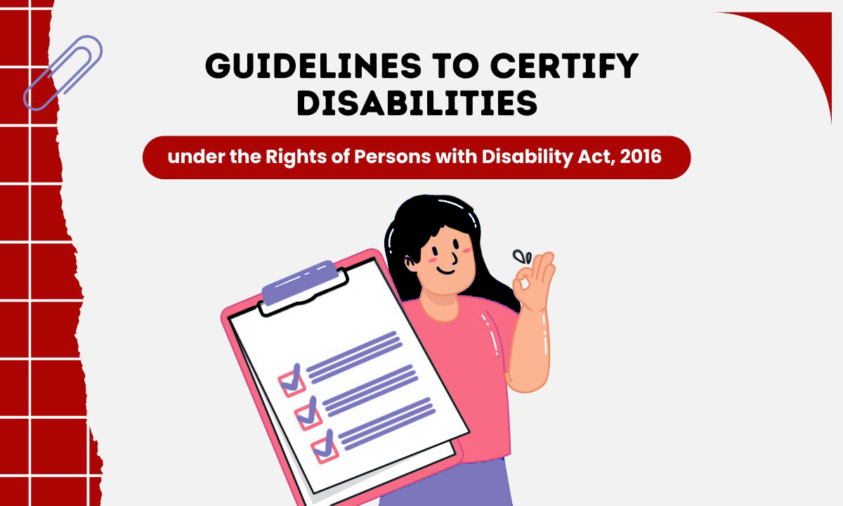The Rights of Persons with Disabilities Act, 2016 came into force on December 27, 2016 to give effect to the United Nations Convention on the Rights of Persons with Disabilities (UNCRPD). In exercise of powers conferred by Section 56 of the Rights of Persons with Disabilities Act, 2016, the Central Government has notified the guidelines for the purpose of assessing the extent of following specified disabilities in a person after having considered the recommendations of the Ministry of Health and Family Welfare, namely:
- locomotor disability including cerebral palsy, leprosy cured, dwarfism, acid attack victims and muscular dystrophy;
- blindness and low vision;
- deaf and hard of hearing and speech and language disability;
- intellectual disability and specific learning disabilities;
- mental illness;
- chronic neurological conditions;
- haemophilia, thalassemia and sickle cell disease; and
- multiple disabilities.
In terms of Section 57 of the Rights of Persons with Disabilities Act, 2016, the state governments, or, as the case may be, union territory administrators, shall designate persons having the requisite qualifications and experience as certifying authorities who shall be competent to issue the certificate of disability and also notify the jurisdiction within which and the terms and conditions, subject to which, the certifying authority shall perform its certification functions. The Director General of Health Services, Ministry of Health and Family Welfare, Government of India, shall have the final authority to decide upon cases where any controversy or doubt arises in matters relating to the interpretation of the definitions, classifications, or evaluation procedures regarding the said guidelines.
To know the detailed guidelines for the purpose of assessing the extent of a specified disability in a person included under the Rights of Persons with Disabilities Act, 2016, kindly click here.


 Cart is empty
Cart is empty 
